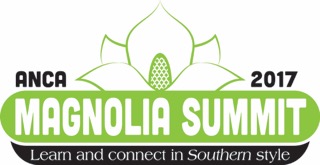Report from Association of Nature Center Administrators (ANCA) Conference
| Written by
Elissa Miller |  Back
Back

David Mimeles, Doubleknot's VP for Sales and Marketing, wrote the following about ANCA's Magnolia Summit, the organization's annual conference. I had a great time at the Association of Nature Center Administrators (ANCA) national conference at the McDowell Environmental Center in Nauvoo, Alabama! As an event sponsor, I’m proud to support the efforts of these dedicated environmental professionals, and it was great to see so many Doubleknot clients like Indian Creek Nature Center, Blandford Nature Center, Chippewa Nature Center and Irvine Nature Center sponsoring the summit scholarships! My goal in attending (other than winning delicious maple syrup, more on that later) was to show our support for nature centers and conduct a listening campaign to better understand the unique challenges that nature centers, botanical gardens and similar organizations are facing. All of the workshops and sessions I attended were excellent. I especially appreciated Sharing Ideas for Earned Revenue Sources, facilitated by Andrea Timpone, President and CEO of the Elachee Nature Science Center in Gainesville, Georgia. Here are a few of my notes:
- In general, the percentage of earned revenue (as opposed to contributed revenue) for nature centers may range anywhere from 25 to 65 percent.
- The biggest and most reliable sources for earned revenue are summer camps, preschool programs, facility rentals and birthday parties. These revenues are often used to offset costs of programs that aren’t profitable but are important to the mission.
- Despite their popularity, outreach programs where instructors visit schools are rarely profitable; according to attendees, these programs break even at best and can often cost more to operate than they bring in. However, they remain important because they educate and inform student populations who might otherwise not have access to the wealth of resources that nature centers provide.
- Many attendees reported that adult workshops offering hands-on experiences deliver benefits that non-interactive programs like lectures do not. Satisfaction is higher when participants have a sense of accomplishment, and the experience helps build greater bonds that can result in more donations, memberships and positive word of mouth.
